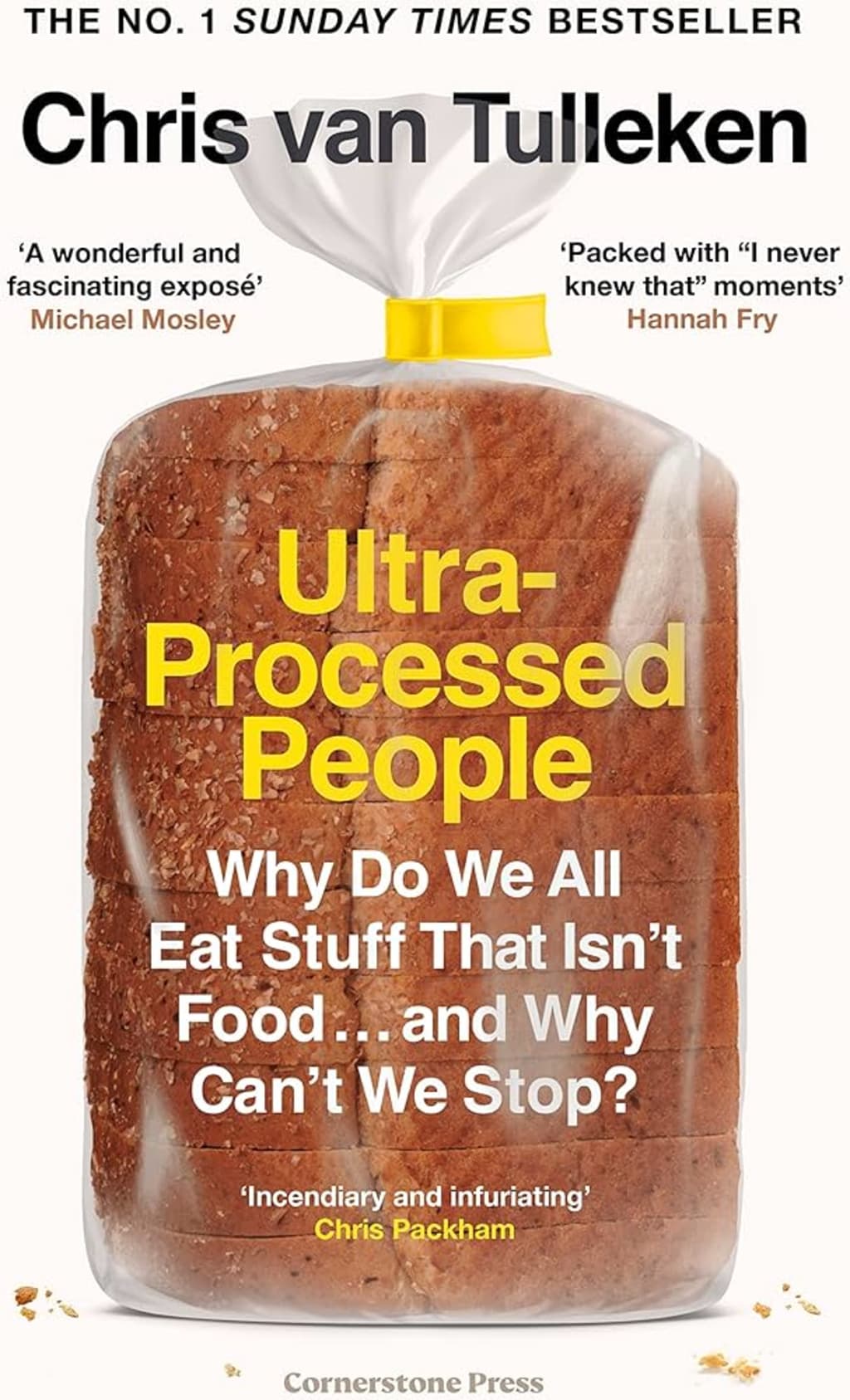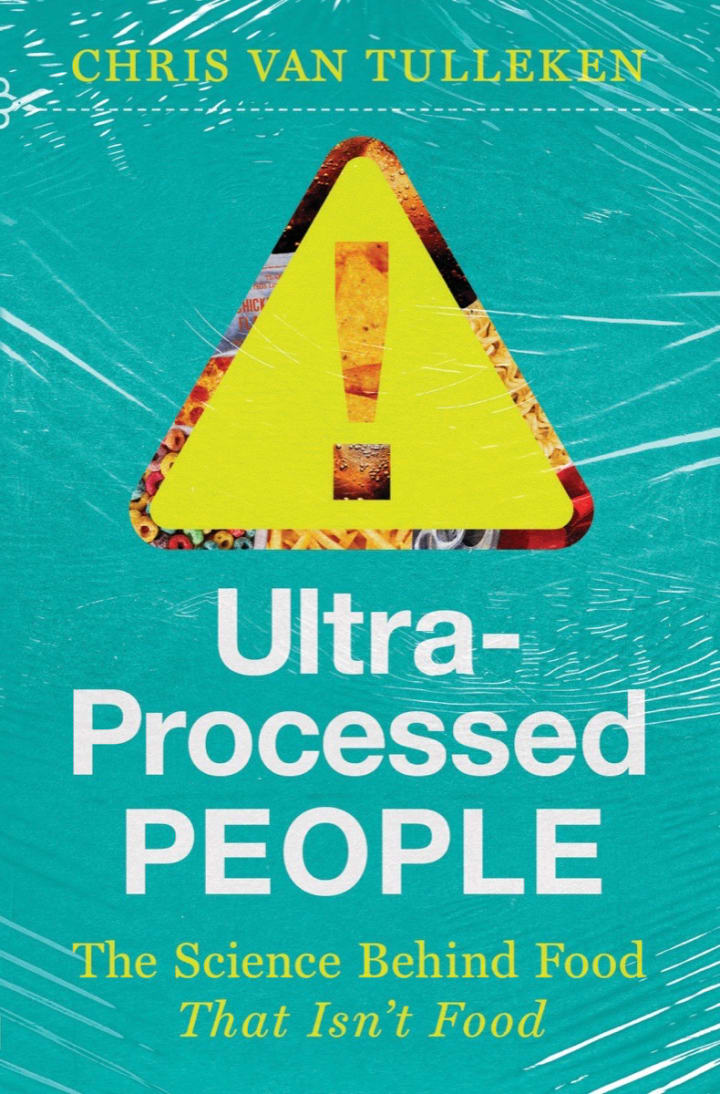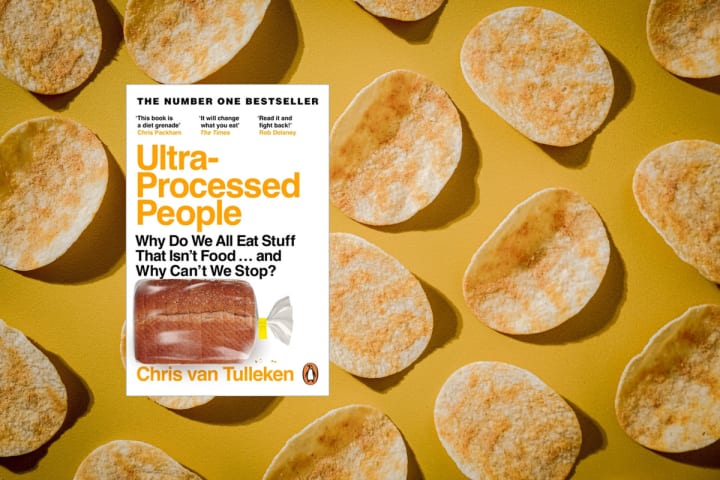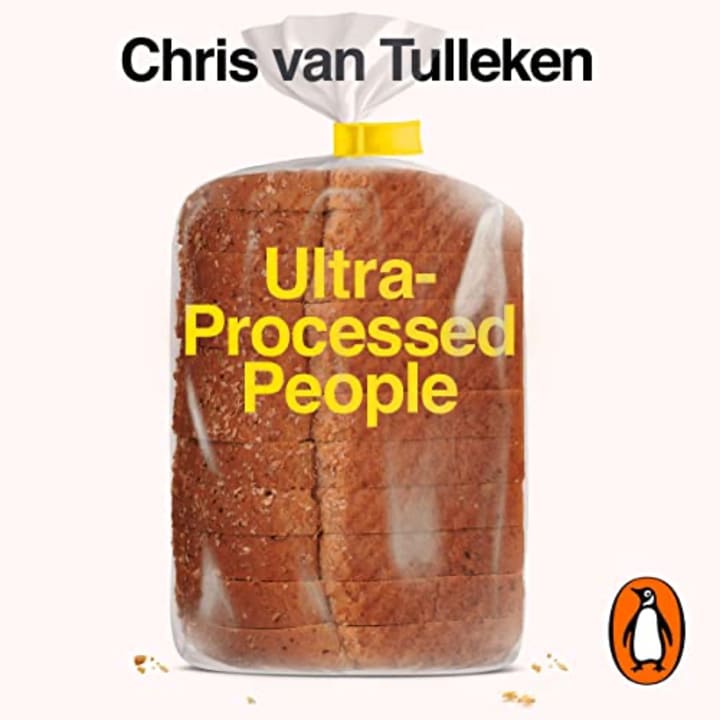Book Review: "Ultra-Processed People" by Chris van Tulleken
5/5 - a scathing rebuke of the dietary 'big machine'...

“The food security that many of us enjoy is the product of a system of production that has kept costs low by destroying wild land and not paying for the costs of atmospheric carbon. These approaches will, ironically, create huge food insecurity. This is happening already around the globe, but nowhere more directly than in the areas of the Amazon that have been deforested to grow soy.”
My want to read science-based books is almost less than zero. This is not because I do not care about them, but simply because I found science difficult at school and the little that I do know is never really sufficient to read a whole book full of chemical names and reactions. Written in a simpler style but still requiring me to keep Google open with 'define' pre-typed in the search bar, Ultra-Processed People is an eye-opening guide to how massive corporate overlords of food have taken over every facet of our digestive experience and therefore, our actual existences.
Broken down into twenty short chapters, this book explores a logical structure of how everything we have been taught about diets, exercise, nutrition and more has been pretty much a lie - and what we have to do about it now. All backed up by science, the author takes a rigid stance against the rampant marketing of Nestle and Coca-Cola along with making a case for traditional cooking and more whole foods.

My first favourite part of this book was where we are taught about the history of food research. Different scientists over the years have researched everything from how we eat to how babies choose foods. This does start off as a bit a of weird topic to cover, but as we continue into the book it proves very useful in how we now choose what we eat based on what we are told by bigger companies. All through the lens of Ultra Processed Foods (UPF), chemicals that are not even food products are used to distrupt our brains and force us to choose more foods that satifsy the pockets of greater companies making cheap food with low product cost. It proves to be an effective lesson in how critical thinking is performed through linking together these different ideas. If we eat like (x) as babies according to the research then what happened? Nestle happened.
The next part I enjoyed was learning about why UPF is so addictive. Not just through the chemicals, but through its soft texture and its higher calories by bite, these foods prove to be massively unhealthy and also leave people feeling hugry even after eating. The author explains why this is - it is because of the lack of actual nutritional content. It is not actually food and therefore, won't behave like food does in the stomach and not fill us up. It is a lesson in what these companies are actually doing to us - they are hacking our brains so that we may be constant consumers of these substandard products produced only to make us consume more.
One of the parts that scared me the most that I won't go into too much because it is actually quite sad is the floating supermarket situation of Nestle in Brazil. This is not only about the obesity rates of Brazil seemingly increasing over the course of the Nestle invasion, but also considers an act of colonialism by displacing the traditional foods of the country. That's all I will say about it but there is a lot more to discover in that particular chapter. In my opinion it was possibly the best written chapter of the entire book. It really made you think about how rampant the marketing and how aggressive the push really is.

An eye-opening part of the book is when you realise that much of the research into the 'exercise not diet' changes that people were told to make to their lives was done by researchers sponsored by Coca-Cola. If you're wondering why Coca-Cola would sponsor something like that then you're probably thinking about the right thing. It's a horrific realisation but it also makes perfect sense for the company and that's what makes it even more horrible. That is only one of the things that you will learn whilst reading intensely into this research.
From stating that it isn't sugar, exercise, or willpower to looking at how additives behave in the brains of children to denying his two toddler girls Coco Pops until giving in and letting them eat bowlfuls of the stuff, the author goes through every single facet of the problem and most of them involve the market. The market has not only been saturated with terrible food with terrifying chemicals, but they have done it so that even the most remote and inaccessible areas can gain access. This is performed through a horrific strategy which aligns more with missionary work and forced religion than health and kindness.

All in all, I found this book easier to read than other science-based texts. There were moments of perplexity where Google was still open for me to look things up, but when I did finish it, it felt like a relief because I feel like I've learnt something. Aggressive marketing is not only to blame for all of this, but it seems to be the actual root cause of the entire problem throughout the course of the 20th century.
Note: I realise the irony of saying all of this whilst drinking a bottle of S.Pellegrino Sparkling Water - a water company owned by Nestle.
About the Creator
Annie Kapur
200K+ Reads on Vocal.
Secondary English Teacher & Lecturer
🎓Literature & Writing (B.A)
🎓Film & Writing (M.A)
🎓Secondary English Education (PgDipEd) (QTS)
📍Birmingham, UK
X: @AnnieWithBooks
Enjoyed the story? Support the Creator.
Subscribe for free to receive all their stories in your feed. You could also pledge your support or give them a one-off tip, letting them know you appreciate their work.






Comments
There are no comments for this story
Be the first to respond and start the conversation.